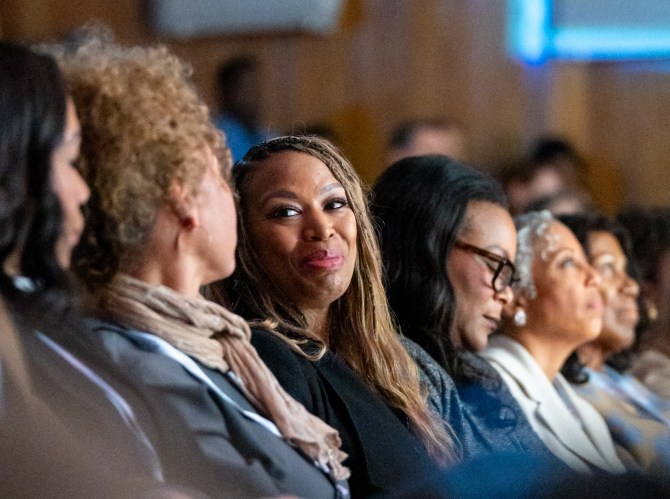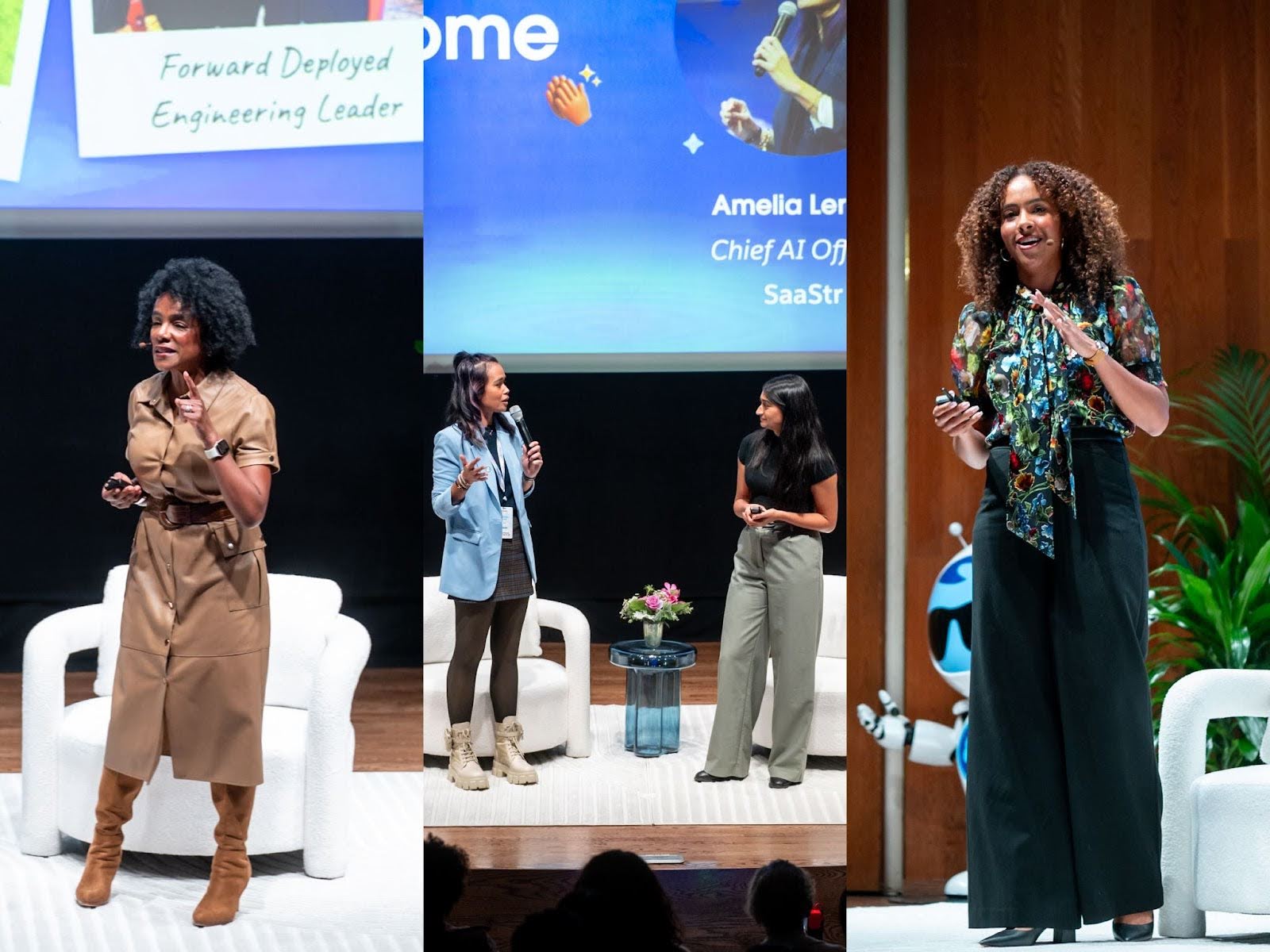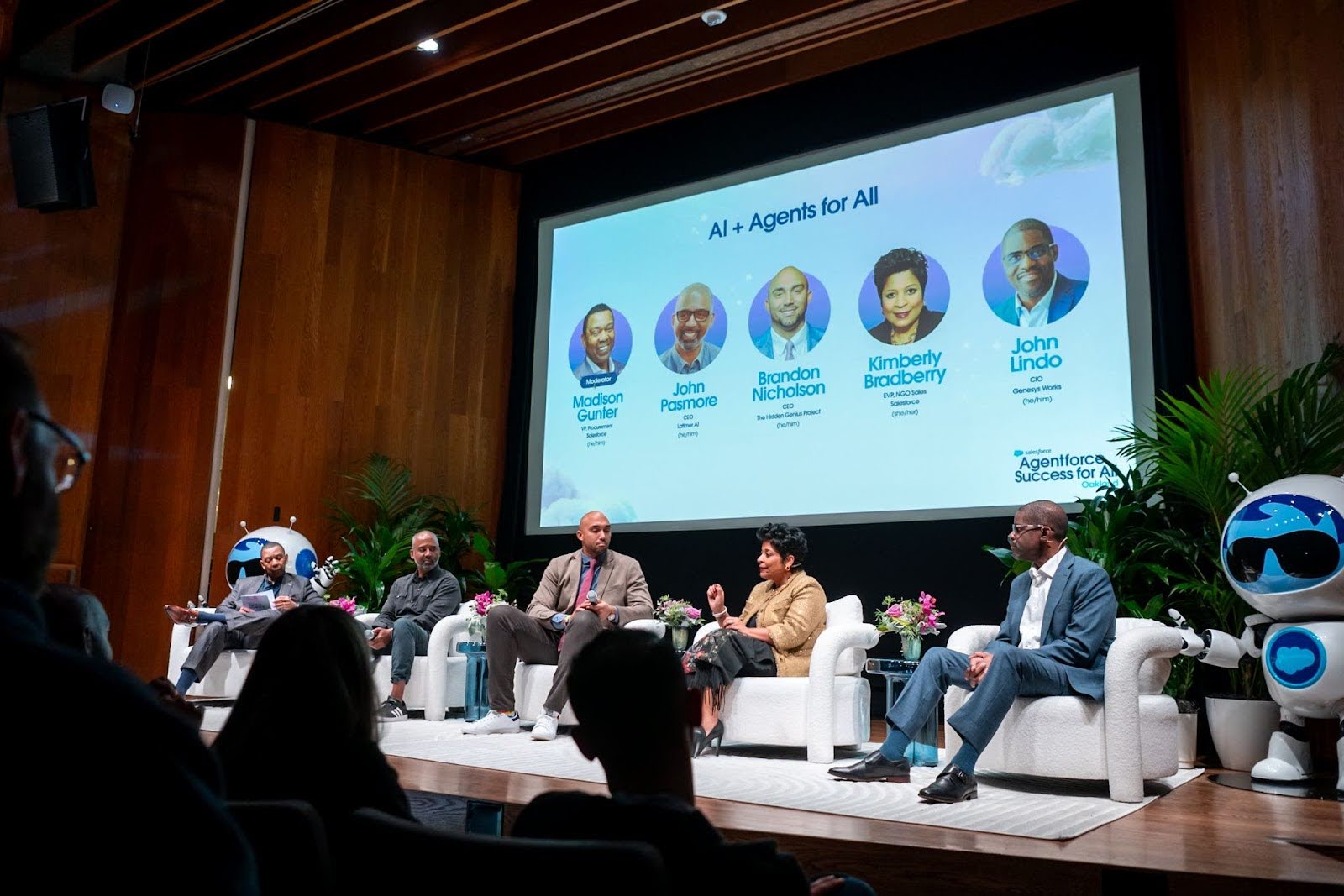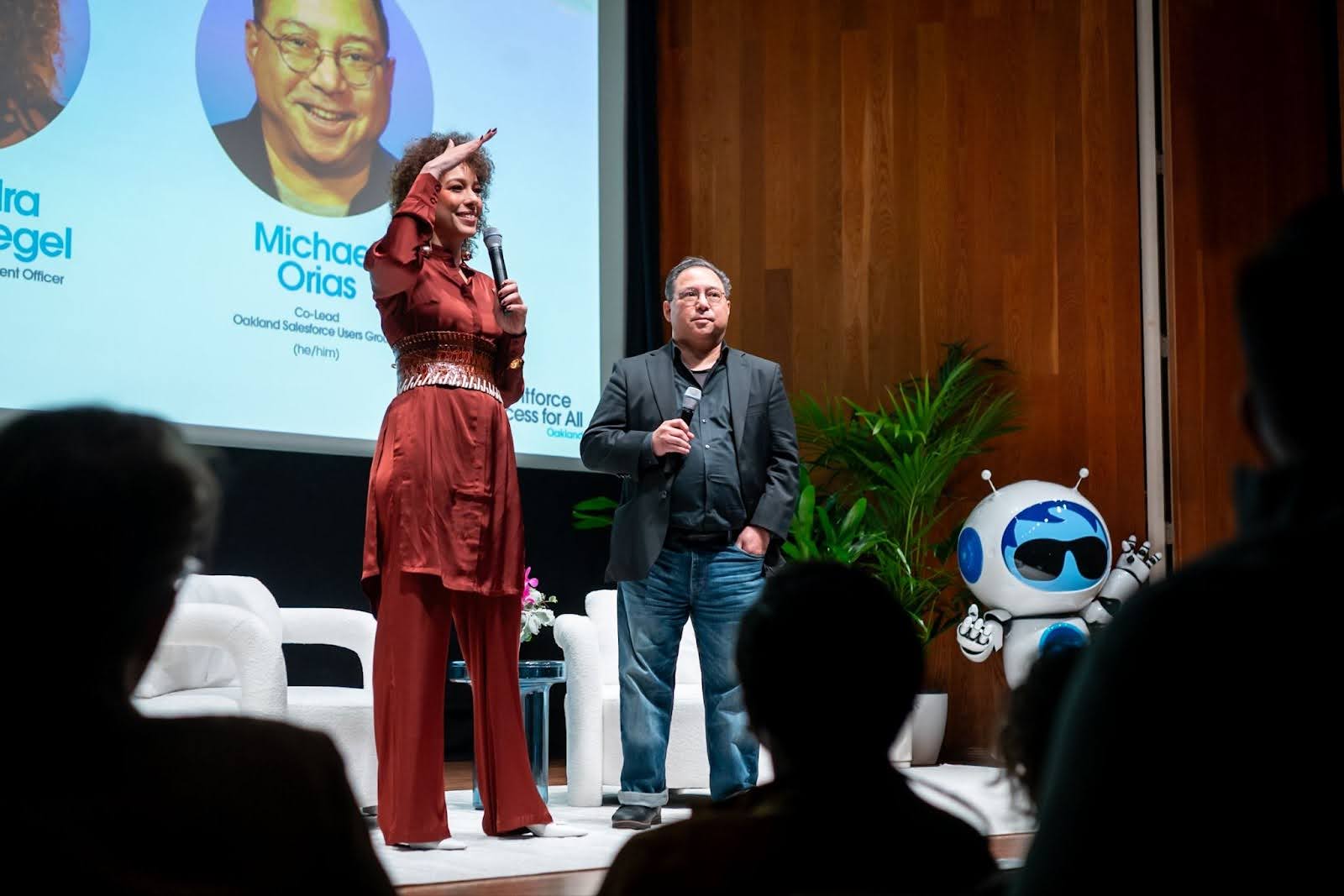Bringing AI Skills, Opportunities, and the Power of Agentforce to Oakland



Learn how Salesforce is democratizing access to the future of work with AI and Agents with our Agentforce Success for All initiative: Oakland and beyond.
We are living in a moment of profound technological shift. Generative AI is being adopted faster than any other technology, including the internet and personal computer, and as Salesforce CEO Marc Benioff said, “we are the last generation to manage the human-only workforce” as agent coworkers augment our work.
With every technological shift comes opportunity. Yes, there is uncertainty. Yes, jobs will change. Yes, new skills will be needed. We also know that there will be new jobs, new possibilities, and new ways to leverage our skills to address the needs of our communities.
As tech leaders and at Salesforce, we are helping to define the future of work with human + agent collaboration, where AI agents don’t just assist us, but act alongside us to drive customer success and business growth. We have a powerful opportunity and responsibility to democratize access to the knowledge, skills, and tools needed to succeed and equip everyone to drive impact in this future.
This week, that mission brought us across the bridge from Salesforce headquarters to the Oakland Museum of California for Agentforce Success for All: Oakland.

Rooted in our core value of equality, commitment to business as a platform for change, and extension of our 1-1-1 model, our Agentforce Success for All initiative is more than just a tech conference. It is a gathering of neighbors, small business owners, non-profits, educators, and Trailblazers, all united by a shared goal: to democratize AI literacy and ensure our local communities can thrive, imagine, create, and succeed in the future of work.
Demystifying AI & hands-on learning

To truly democratize AI, we first have to demystify it. In our “Demystifying AI” session, Salesforce leaders like Leah McGowen-Hare, SVP, Forward Deployed Engineering, Rachel Gillum, VP, Ethical and Humane Use, and Sanjna Parulekar, SVP, Product Marketing, broke down the barriers to entry.
Alongside Amelia Lerutte, Chief AI Officer of SaaStr, they showcased how powerful and accessible tools like Agentforce can be — including for small business and non-profit leaders — and demonstrated Prompt-Building 101. Crucially, the discussion highlighted that trust and ethics are non-negotiable; utilizing the Salesforce Trust Layer ensures that as we innovate, we never compromise on customer data security.

We took these concepts from theory to practice with our Hands-on 101 Workshops.
Attendees didn’t just watch demos — they built their own agents and were given the opportunity to get a Quickstart: Build an Agent with Agentforce badge on Trailhead.
Guided by Salesforce experts, participants from all backgrounds — whether they were tech veterans or completely new to AI — learned how to leverage Agentforce to augment their work and potential.
One attendee said: “Before this event, AI was an abstract, almost dystopian concept to me, but after today, I see the potential of AI in community-based work and non-profits.”
Leading the workforce of tomorrow

Navigating this shift requires a new kind of leadership. In “Leading in the AI + Agentic Era,” Salesforce President & Chief Operating and Financial Officer Robin Washington joined Chief Customer and Commercial Officer, Industries Cloud, LaShonda Anderson-Williams to discuss the necessity of adopting an “agentic mindset”. The conversation focused on dispelling the fear of the unknown and reframing the narrative from replacement to collaboration — encouraging everyone to lean into the moment and get involved.
This theme continued in “The Future of Work with AI.” Panelists Nathalie Scardino, Chief People Officer at Salesforce, Erin Dangerfield, SVP of People and Culture at the Golden State Warriors and Chase Center, and Paula Goldman, Chief Ethical and Human Use Officer at Salesforce, explored how AI is reshaping the employee experience and the skills required for success, moderated by Molly Ford, VP of Employer Brand & Recruitment Marketing at Salesforce.
As Scardino emphasized, this is “not just a technology transformation, it’s a people transformation.” To navigate this shift, she pointed to the 4Rs of Workforce Innovation — Redesign, Reskill, Redeploy, and Rebalance — as a blueprint for success.

The panel tackled the critical intersection of ethics and operations, with Goldman discussing how we can apply principles of responsible, ethical, and humane use internally to ensure our workplaces remain fair and inclusive as we adopt these powerful new tools.
Building an AI future that reflects everyone

Innovation must be inclusive by design. In our “AI + Agents for All” panel, we heard from community leaders who are democratizing access to these technologies.
- Madison Gunter, VP of Procurement at Salesforce, offered his perspective on leading programs to invest in Oakland and Bay Area small businesses, including the launch of Salesforce’s upcoming Small Business Agentic AI Program.
- Brandon Nicholson, CEO at The Hidden Genius Project shared how they are preparing young Black men for the agent-powered workforce.
- John Pasmore, CEO at Latimer.AI, discussed the importance of structurally correcting blind spots in AI data to ensure the next generation of tools reflects everyone.
- John Lindo, Global CIO at Genesys Works and Kim Bradberry, Global EVP, NGO Sales at Salesforce, highlighted how mission-driven organizations are using agentic technology to scale their impact and drive positive change.
Education and access for all

We also convened a powerful conversation on “Education + Access for All,” moderated by our own Ron Smith, VP of Education and Workforce Development Philanthropy. The panel featured incredible leaders including Dr. Christie Chung, Executive Director at The Mills Institute, Dr. Shirley M. Collado, President and CEO at College Track, and Catherine Nichols, Chief Accessibility Officer at Salesforce.
They tackled the critical questions of our time: How do we dismantle systemic barriers to career entry? How can AI be used to democratize specialized guidance for first-generation students? And crucially, how do we ensure that as we build the future, we are including people with disabilities as key innovation partners?
The consensus was clear: Education is the key to opening doors in the agentic era, and access must be intentional, not accidental.
Conversations with local legends on community

We were honored to be joined by Oakland Mayor Barbara Lee, who championed a vision where inclusive innovation reaches every corner of the city. Mayor Lee emphasized her commitment to ensuring that tools like Agentforce don’t just advance technology, but “truly align with improving people’s lives.” She highlighted the need for real pathways in tech centers and support for diverse entrepreneurs, ensuring that progress reaches every single neighborhood in Oakland rather than displacing the people who call it home.
We also spoke with Michael Orias, Salesforce Trailblazer and co-lead of the Oakland Salesforce Users Group. We discussed his work as a community builder who is actively supporting his neighbors through their own upskilling journeys. Michael’s leadership reminds us that the future of work isn’t built in a silo; it’s built in community, where Trailblazers help one another navigate the shift to the agentic era together.

Deeply rooted in Oakland
Salesforce is dedicated to giving back to the communities where we live and work, and for this event, that meant celebrating the vibrant spirit of Oakland. We wanted every aspect of the day to reinvest in the local economy, starting from the iconic community venue: the Oakland Museum of California.
We were proud to partner with incredible local Oakland businesses to bring this event to life:

Values drive value
As I looked around the room — at the professionals learning new skills, the small business owners networking, and the community leaders sharing insights — it reaffirmed that in the agentic era, our values are what drive true value. Everyone belongs in the future of AI and agents – and when we center different perspectives and experiences, we create better technology and impact for all.
The Guide to AI for Small Business
AI can transform your small business for the better. Get the guide below to learn how.





























